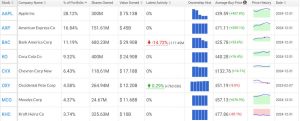Demand for havens such as U.S. Treasurys faded Tuesday, allowing yields to rise, after Russia said some troops participating in military exercises near the border with Ukraine were returning to their bases, turning investors’ focus back to inflation and the Fed’s expected policy response.
What are yields doing?
-
The yield on the 10-year Treasury note
TMUBMUSD10Y,
2.031%
rose to 2.039%, up from 1.995% at 3 p.m. Eastern on Monday. -
The 2-year Treasury yield
TMUBMUSD02Y,
1.579%
rose to 1.588%, little changed from1.589% on Wednesday afternoon, which was the highest level for the short-dated Treasury since Dec. 26, 2019, according to Dow Jones Market Data. -
The yield on the 30-year Treasury
TMUBMUSD30Y,
2.333%
was at 2.342%, compared with 2.30% on Monday afternoon.
What’s driving the market?
Fears of an imminent Russian invasion of Ukraine faded somewhat after Moscow said Tuesday that some units would begin returning to their bases, though Ukraine’s leaders expressed skepticism. The announcement comes a day after Russia’s foreign minister indicated Moscow was prepared to keep talking with the U.S. and its allies about security issues that have led to the Ukraine crisis.
While Ukraine worries aren’t completely off the radar, an easing of tensions leaves fixed-income investors to focus on concerns over persistently hot inflation and the Federal Reserve’s response. Yields have risen significantly since the beginning of the year and surged last week after the January consumer-price index rose to a year-over-year 7.5%, a nearly 40-year high.
Read: Consumers don’t think high inflation will last very long, NY Fed research shows
Market participants have penciled in an aggressive round of interest rate increases by the Fed, including the prospect of a 50 basis point, or half a percentage point, increase at the next policy meeting in March. Short-dated yields, which are more sensitive to rate expectations, have jumped more than longer-dated yields, flattening the Treasury yield curve — a phenomenon that can signal concerns over economic growth as the Fed tightens policy.
Investors will get a look at inflation pressures at the producer level with the release at 8:30 a.m. Eastern of the January producer-price index. Economists surveyed by The Wall Street Journal look for the January PPI to show a monthly rise of 0.5% after a 0.2% increase in December.
The New York Fed’s Empire State Manufacturing index is also due at 8:30 a.m.
What are analysts saying?
“Russia’s decision to return some troops to their bases following the completion of some military exercises has stoked a relief rally in equities, while weighing on the dollar, gold, and oil,” while the 10-year Treasury yield probed a recent high and European government bond yields firmed, said Marc Chandler, chief market strategist at Bannockburn Global Forex, in a note.
This post was originally published on Market Watch







